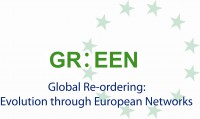Assembling an Experimentalist Regime: EU FLEGT and Transnational Governance Interactions in the Forest Sector

It is a commonplace of international relations theory that effective, integrated regulatory regimes cannot easily be constructed in issue areas characterized by divergent interests and beliefs among key actors, where there is also no hegemon with the power to impose a single set of rules (Keohane and Victor 2011; Hasenclever et al. 2000). The result in such conditions is typically regime complexity: a proliferation of regulatory schemes operating in the same policy domain, supported by varying combinations of public and private actors, including states, international organizations, businesses, and NGOs. Where these parallel, overlapping, or competing initiatives are not joined up into a coherent hierarchical system, the ensuing fragmentation has often been held to undermine the effectiveness of transnational regulation (Raustiala and Victor 2004; Alter and Meunier 2009; Shaffer and Pollack 2009-10). Recently, however, some scholars working in this area have identified the possibility of productive interactions emerging or being deliberately orchestrated among the components of such transnational regime complexes (Keohane and Victor 2011; Alter and Meunier 2009; Abbott and Snidal 2009b, 2010).



